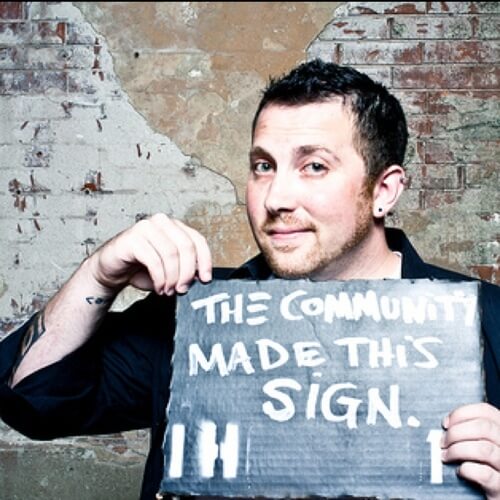Last night I was at National Mechanics for the PANMA spring social, and fashionably late as usual. That didn’t keep me from staying late and having some great discussions. One of them was with Aaron “Shaggy” Hoffer-Perkins. Shaggy (best nickname ever. jinkies.) is a partner in a new startup here in Philly, and studying entrepreneurship at Temple.
Turns out, Shaggy isn’t just an entrepreneur, he’s a geek who rivals my own geekdom: he’s part of a program called “The Wayfinder Experience“, which is basically a kid’s “gaming camp” that teaches team building, leadership, and communication skills through role playing games and improvisation. His tagline is “building community through play”.

LARPing meets summer camp, with a purpose. It’s ideas like this that are crazy enough to work.
Finding out more about Shaggy, he explained his background in theater, specifically improv, and that he teaches an improv class as well. I’ve always wanted to take an improv class, not that I think my communication and improvisational skills are poor, but I think it’d be a lot of fun. This is when things got interesting. Shaggy told me the 3 guidelines for improv, and how they’ve shaped him as an entrepreneur.
- Accept and Build (yes, and…)
- Make your partner look good
- Dare to be average
Accept and Build: The “yes, and…” principle is something I think I heard first from Jason Tremblay during a brainstorming session at IndyHall. The concept lets you get all of your ideas out in the open, without worrying about them being shot down or flopping. If everyone in the circle is using the “yes, and…” principle, you can be fairly confident that someone else’s riff can pick up your dud of an idea and make it a stud. This ties into the core value of openness and sharing: don’t be afraid your idea isn’t good enough to share yet. Every time I hear someone share an idea while being open to feedback, that idea comes back 10x better.
Make your partner look good: there’s a pretty obvious tie to guideline #1 here. In fact, one really doesn’t work without the other. Your partner needs to be open to being made look good, and you need to always be looking to utilize them as an out in a way that helps them look good. I also see this as a small but crucial social capital deposit: be it for your business partners, your vendors your clients, your new leads…everyone.
I don’t get the “sabotage” mentality in business. If you’re working to make everyone else look good instead of just yourself, you end up inherently look good and at the same time open the door for others to make you look good, too. Never point fingers.
Dare to be average: This one’s a bit tough to swallow, considering my mantras include “do epic shit” and “go big or go home”. But that’s not what this is about. This is about finding uniqueness in yourself, rather than going for the obvious thing that you’re 100% sure will get the laughs (or, the users, the funding, etc). By not waiting for the “perfect idea”, or for it to be “fully baked”, you let down your guard and expose some of yourself. People are mortified of having a piece of themselves in their business, and so they are reluctant to have this kind of fundamental bond with their idea. But it’s these ideas, the “first thing in your head” ideas, that will be unique because it’s you, your voice, based on your background and your experiences.
The counter-intuitiveness is that by letting yourself “be average”, you open the door to being extraordinary.
 I am always thinking about the intersection of people, relationships, trust and business. I founded
I am always thinking about the intersection of people, relationships, trust and business. I founded